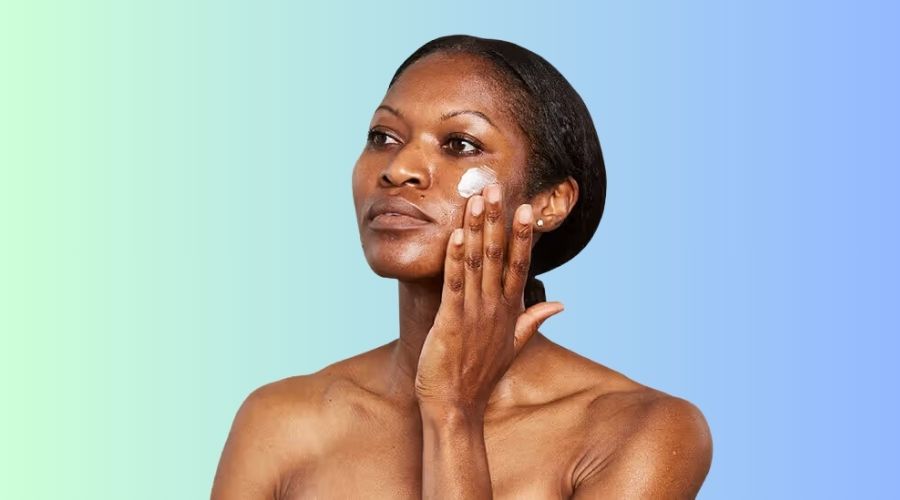Sun protection is a crucial component of skincare that should never be disregarded. SPF (Sun Protection Factor) selection becomes essential in a place like India, where the sun shines brilliantly all year round. The best SPF sunscreen for Indian skin is crucial because of the country’s wide range of skin tones and climates. We will explore the unique characteristics of Indian skin in this blog and offer advice on selecting the best SPF for your requirements.
Before exploring SPF guidelines, let us comprehend the need for sun protection for Indian skin. Overexposure to UV (ultraviolet) radiation can cause sunburn, premature aging, hyperpigmentation, and a higher chance of developing skin cancer, among other skin problems. Compared to lighter skin tones, Indian skin has a higher melanin level, naturally protecting it from the sun’s harmful rays. This does not imply, however, that Indian skin is impervious to sun harm. Enough protection from the sun is essential for everyone, regardless of skin tone.
Things To Consider While Choosing The Best SPF:

Melanin Levels: Indian skin comes in a wide range of tones, from light to dark. The pigment melanin, which gives skin its color, offers built-in defense against ultraviolet light. Sun sensitivity is impacted by variations in melanin levels among Indian skin tones. Melanin, which naturally provides good UV protection, is typically present in darker skin tones. But it’s also crucial to remember that sun protection is still necessary for people with darker skin tones.
Geography and Climate: India has a wide range of climates, from humid tropical parts to arid deserts and high-altitude regions. The degree of sun exposure and intensity might differ greatly between different areas. Determining the right SPF required requires a good understanding of the local climate and levels of sun exposure.
Let’s Make the Best Choice:
Darker Skin Tone:

Although they are less prone to sunburns, those with darker skin tones are nonetheless vulnerable to other types of UV damage. An SPF of 30 or higher is advised for such people. Look for sunscreens that are specifically made for darker skin tones, as they may provide extra benefits such as minimizing the appearance of hyperpigmentation.
Lighter skin tone:

Lighter skin tones typically need more protection from the sun because they are more vulnerable to sunburns. Choose a broad-spectrum sunscreen with at least 50 SPF. Use physical blockers such as titanium dioxide or zinc oxide; these offer great protection without producing a white cast.
Tropical and high-altitude areas:

If you reside in places with intense sun exposure, such as coastal areas or high-altitude regions, choose a higher SPF. Sunscreen with an SPF of 50 or above will offer additional protection against the harsher rays present in these places.
Using and Reapplying Sunscreen:

Use enough sunscreen and reapply it every two hours, or more frequently if you sweat a lot or want to swim. This is important regardless of the SPF level. To enable the sunscreen to be absorbed by the skin, remember to apply it at least 20 minutes before being in the sun.
There is no one-size-fits-all method for figuring out the ideal SPF (Sun Protection Factor) for Indian skin. Several variables, including skin tone, environment, and amount of sun exposure, might affect the recommended SPF. Dermatologists typically advise Indian skin types to use a broad-spectrum sunscreen with an SPF of 30 or higher.
It’s critical to realize that the SPF rating indicates the degree of protection against UVB rays, which are mostly to blame for sunburns. About 97% of UVB rays are blocked by an SPF of 30, while higher SPFs provide marginally more protection. It’s important to remember, though, that SPF levels higher than 50 do not offer noticeably better protection and could even trick consumers into believing they can spend too much time in the sun.
Conclusion
Choosing the right SPF for Indian skin requires taking into account several variables, such as skin tone, climate, and amount of sun exposure. Regardless of your skin tone, protecting your skin from UV rays is essential to keeping it healthy and avoiding sun damage. Choose a broad-spectrum sunscreen with an SPF of at least 30, and for areas with heavy sun exposure and fairer skin tones, think about using a higher SPF. For the best protection, always remember to apply sunscreen liberally and reapply it frequently. You can enjoy the sun without sacrificing the health and radiance of your skin by adhering to these rules.
It is advisable to seek advice from a physician or skincare specialist who can evaluate your unique skin type, problems, and lifestyle elements to offer customized suggestions regarding the optimal sunscreen and SPF for Indian skin. For more beauty tips, visit www.megafeedz.com
FAQs
Q1. Which particular compounds, if any, should I stay away from while purchasing sunscreen?
Ans: Look for sunscreens with antioxidants and broad-spectrum protection while making your choice. Ingredients for broad-spectrum protection include zinc oxide and titanium dioxide. Steer clear of octinoxate and oxybenzone due to environmental risks. If your skin is sensitive, go for hypoallergenic or fragrance-free products. Always carefully read the label, and if you have any doubts about a product’s compatibility, don’t be afraid to see a dermatologist.
Q2. How often should I reapply sunscreen throughout the day, especially considering elements like sweat, water exposure, and activity levels?
Ans: Reapplication is usually advised every two hours. Reapply more frequently if you’re swimming, perspiring a lot, or doing anything else that can cause the sunscreen to rub off. Water-resistant sunscreens can protect you for up to 40 or 80 minutes in water. Reapplying is still a good idea, though, especially after towel-drying off or spending a lot of time in the water. You might need to reapply more frequently to maintain your protection from the sun’s rays if you’re engaged in physically demanding activities or plan to spend a lot of time in the sun.
Q3. Does sunscreen intended for the body differ from that for the face?
Ans: Sunscreens for the face and body can have different properties. To treat aging or sensitivity, facial sunscreens occasionally include antioxidants or moisturizers. They also tend to be lighter and less likely to clog pores. Broad-spectrum protection is given priority in body sunscreens, which may be thicker. Some sunscreens, nevertheless, are appropriate for both the body and the face. The ideal option varies based on the particular product and individual tastes.











